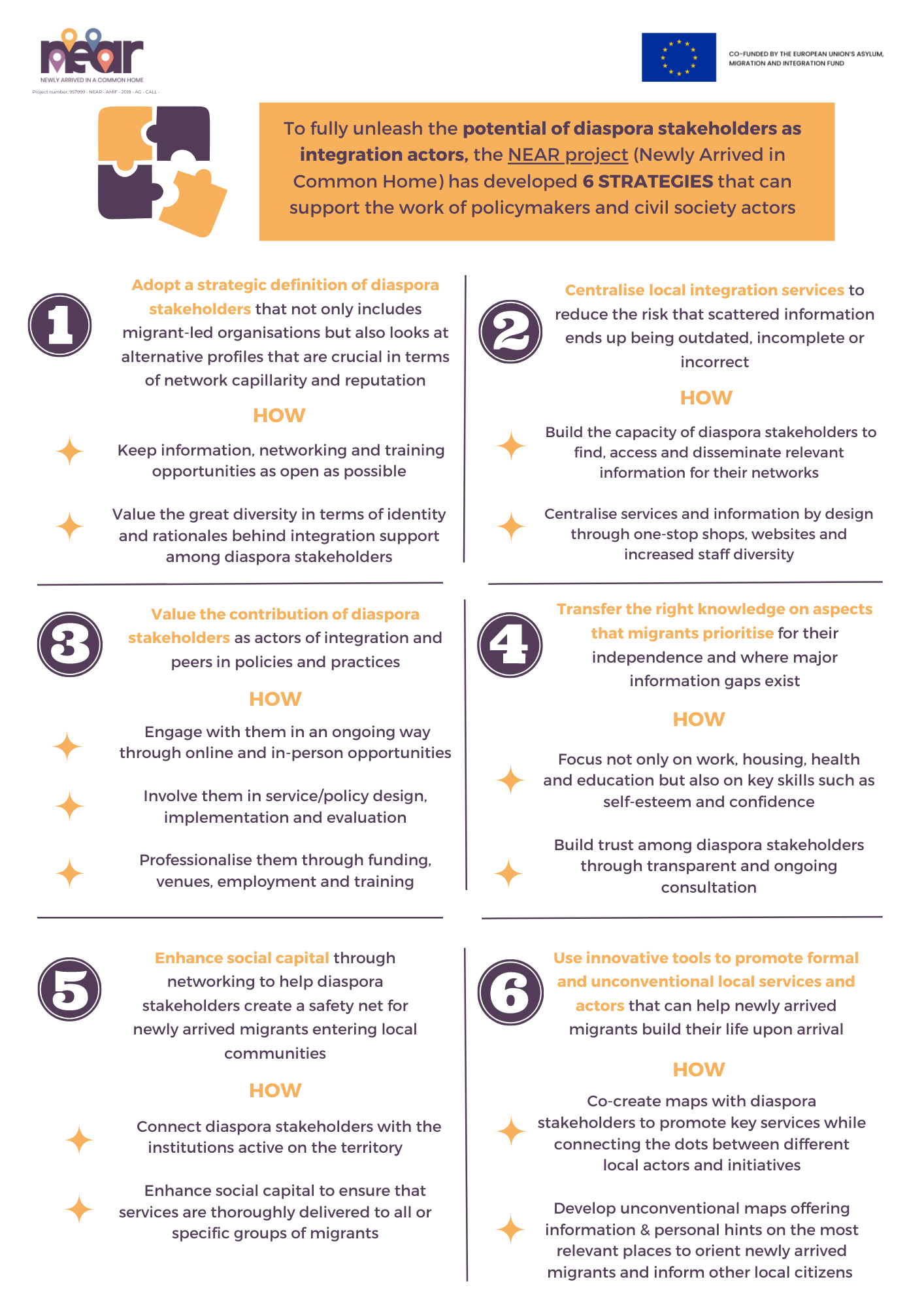Today NEAR is launching the policy brief “Together for a common home. How diaspora stakeholders can support the integration of newly arrived migrants at local level”, that officially concludes a two-year journey into supporting social orientation of newly arrived migrants.
The NEAR project (Newly Arrived in a Common Home), funded under the EU Asylum, Integration and Migration Fund between March 2021 and February 2023, aimed at fostering social orientation of newly arrived migrants during their settlement in the receiving countries. Thanks to the efforts of project partners, the project was piloted in four cities across three EU countries, namely Milan (ISMU, Università Cattolica del Sacro Cuore Milano), Perugia (TAMAT NGO), Lisbon (AIDGLOBAL) and Nicosia (CARDET), and modelled into a set of resources for migrants, stakeholder and policymakers.
One of the core activities of NEAR focused on empowering diaspora stakeholders as actors of integration. Diaspora communities have indeed always played a major role in human mobility by making a wide range of resources available. However, engaging with them in integration policies and services is not an easy task due to several challenges both within diaspora communities and at the policy and practice level. Against this background and based on results of the NEAR project (Newly Arrived in a Common Home), this policy brief aims to support the integration work of policymakers and civil society stakeholders by providing key knowledge on diaspora stakeholders and looking at different strategies to unleash their potential as integration actors for newly arrived migrants.
The policy brief puts forward six recommendations that can facilitate different aspects of policymaking and service provision, including identification and outreach, capacity building, coordination and networking.
- Adopting a strategic definition of diaspora stakeholders that not only includes migrant-led organisations but also looks at alternative profiles that are key in terms of network capillarity and reputation, as relations within diaspora communities often tend to be highly informal.
- Centralising local integration services to reduce the risk that scattered information ends up being outdated, incomplete or incorrect.
- Valuing the contribution of diaspora stakeholders as actors of integration by treating them as peers in policies and practices.
- Transferring the right knowledge on aspects of integration that migrants generally prioritise to be as independent as possible and where information gaps are particularly important and should be addressed.
- Enhancing social capital through networking to help diaspora stakeholders create a safety net on which newly arrived migrants can land once they enter the local community.
- Using innovative tools to promote formal and unconventional local services and actors that can help newly arrived migrants build their life upon arrival.
These six strategies were discussed during the European Workshop “Building inclusive #cities together – How to enable diaspora stakeholders in the development and provision of local integration services” organised by Fondazione ISMU (Iniziative e Studi sulla Multietnicità) on 8/02/2023. The event gathered 30 participants that represented EU and local actors providing a variety of local integration services.






